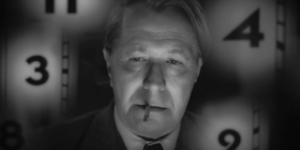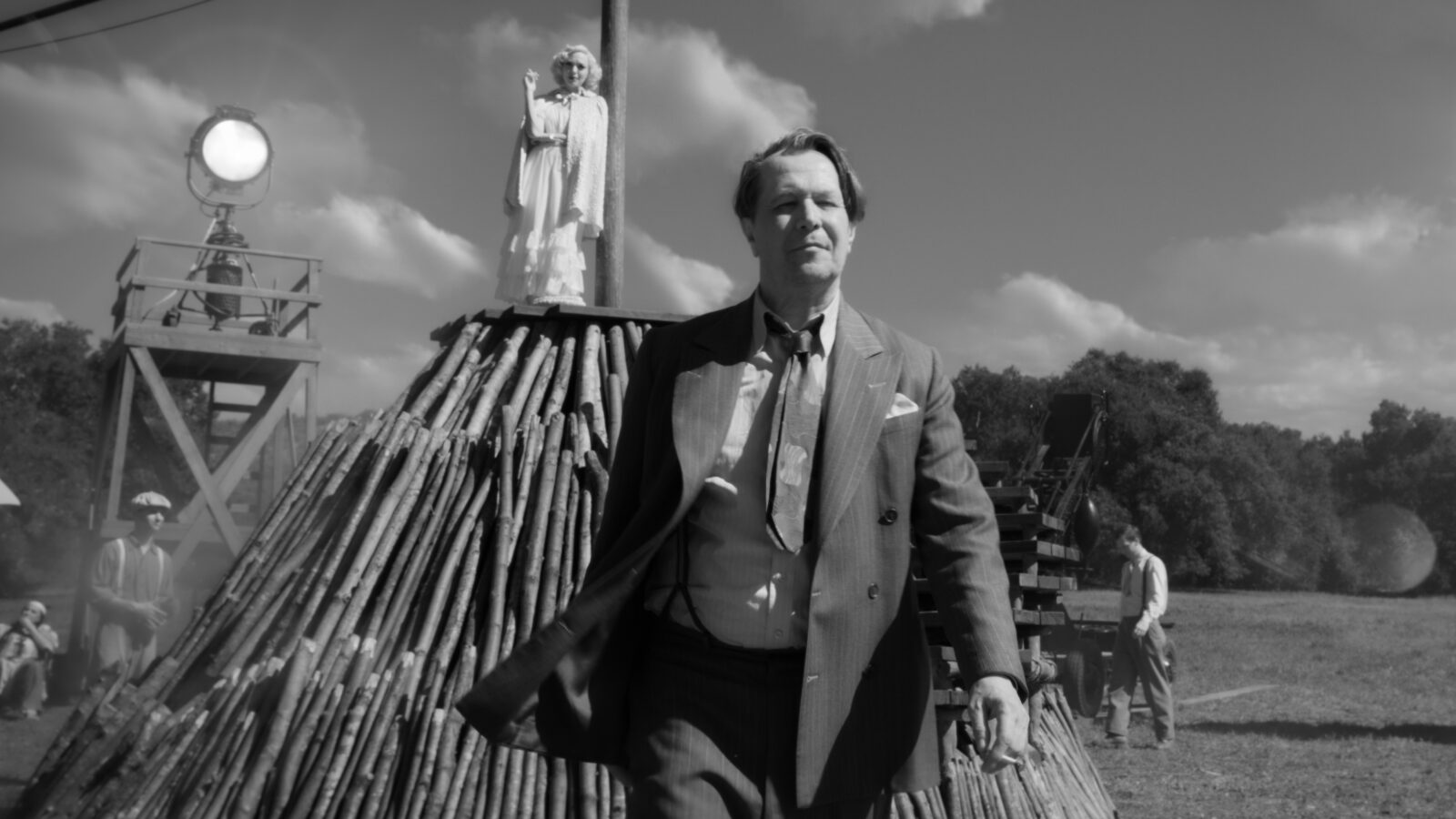While Mank is the story of Herman J. Mankiewicz and his time writing Citizen Kane, the famed Welles classic is not the centerpiece here. In fact, Orson Welles and the actual filmmaking is barely touched upon.
Rather, David Fincher and his late father Jack focus on the world around Citizen Kane. A world where Hollywood fears unions and Upton Sinclair. A Hollywood where William Randolph Hearst, the founder of yellow journalism, reigned supreme. It’s through this landscape, as well as several key figures in Herman’s life, we see how Citizen Kane came to be and how Herman created the iconic masterpiece.
It may be disappointing to some that Kane isn’t the focus here, but Fincher successfully transports viewers into the confusing world of Hollywood. One consumed by wealth and politics. And while certain aspects work better than others, Mank is an engaging feature that serves as an intriguing education lesson on the time period.
The World of Golden Age Hollywood
Perhaps the one thing that Fincher excels at best here is how he brought classic Hollywood to life. Production designer Donald Graham Burt has an incredible sense of detail, immersing the viewers into locations both realistic and lavish all at once. Just one look at the soundstages and film sets bring a nostalgic yet natural feel to the time period. The massive party scenes and mansions found in the film are also well-made sets. They help give the film a unique sense of scale that lovingly tributes the lifestyle of Charles Foster Kane and heightens the movie’s complex themes.
Fincher’s team also had many other shining stars here. DP Erik Messerschmidt brings crisp black and white cinematography. Kirk Baxter’s editing can be quite clever. Trent Reznor and Atticus’ Ross is phenomenal and catchy. It all results in a technical marvel and a world that’s fascinating to look at and immerse into. In many ways, Fincher and his team are the stars here.
The Hollywood Hypocrisy
Jack Fincher’s screenplay juggles a lot of different subjects. And by far, the best aspect is looking at the politics of Hollywood. Herman’s interactions with William Randolph Hearst and other rich Hollywood socialites is fascinating. The discussion of Nazism, communism and Upton Sinclair throughout the film are intriguing to follow. Specifically moments that take the idea of “movie magic” and expose it as a literal propaganda machine.
Films like these typically go for pro-cinema stature, but this dares to suggest its downsides. As a tool for the Hollywood elite to control a narrative and destroy leftist thinkers. The film’s blending of politics and cinema is fascinating and a breath of fresh air. It’s through this nuanced yet still disparaging look at Hollywood that the film has its strongest identity.
Who is Mank?
Jack Fincher’s screenplay has great elements. Yet it doesn’t quite gel as a cohesive whole. The non-linear storytelling doesn’t really add much, and it doesn’t quite feel as tight as it should be. Yet one crucial aspect of the movie that should be the most important piece of it all is what makes this typically engaging film messy. Mank himself.

Gary Oldman’s performance is quite good here. He portrays Mank’s alcoholism, irritations, and closed-off personality well. And while it is false to say Herman Mankiewicz is completely dull, there’s no real reason why he should be the man we follow. His actual story and character isn’t that compelling, and while his alcoholism does play a role in the film, it feels like it arrives in the last minute.
As such, we’re just kind of left with an underdeveloped lead. And while this may have been understandable if he was set to be a blank slate, Fincher puts his character in a halfway point. This is supposed to be a bit of a character study, but the character isn’t engaging enough to follow through the piece as a whole.
To Sum Up…
I can say on the whole that Mank is enjoyable. Fincher directs it with flair and intrigue, and there’s a lot to chew on in terms of themes and ideas. So it’s even more frustrating how flawed the product is. There’s so much potential to make Herman Markiewicz a more compelling figure, and it would have easily gave the movie so much more depth and value. But instead, while there’s plenty to enjoy, it does leave viewers wanting more.
Although it could be possible, like Citizen Kane before it, the film earns greater appreciation and value decades later.
Read my other Netflix reviews here
